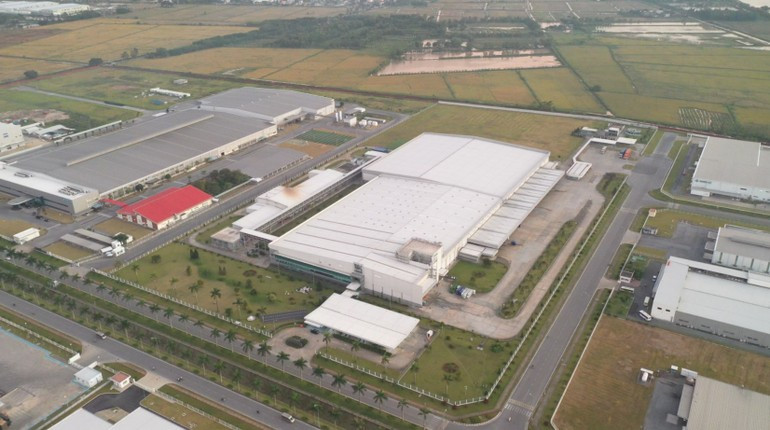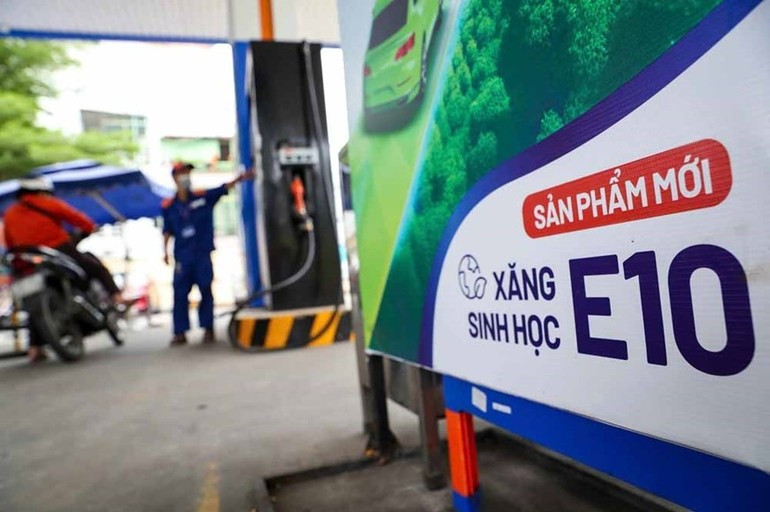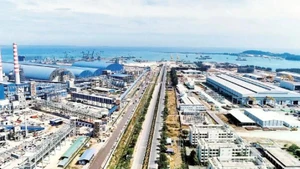According to the Ministry of Agriculture and Environment, Viet Nam produces millions of tonnes of solid household waste each year, much of which remains improperly treated, leading to soil, water and air pollution. Deforestation and illegal resource exploitation have caused a serious decline in biodiversity, while air pollution alone results in estimated losses of 13 billion USD each year, equivalent to about 4% of GDP, according to the World Bank.
According to the United Nations Environment Programme (UNEP) and the UN Economic and Social Commission for Asia and the Pacific (UNESCAP), the green transition — or green economy — is a strategy to maximise economic output while minimising ecological burdens, ensuring harmony between economic growth and environmental sustainability. A 2023 World Economic Forum (WEF) report said that 68% of startups in the sustainability sector were founded by those, who want to address specific environmental or social issues. Thus, the message “Creating a green future” is not only a strategy but also a moral commitment from those who shape a more sustainable Vietnamese economy.
Green transition is a strategic step
Amid this picture, many businesses have chosen to start up not merely for market opportunities but from a deep belief in changes for a sustainable future. Not just stopping at declarations, many corporations have realised green goals with specific projects.
Tung Lam Co., Ltd. is one of the pioneering businesses in producing ethanol for biofuel in Viet Nam. Nearly 20 years ago, the company invested in an ethanol plant in Dong Nai Province, producing 99% ethanol for fuel and 95% ethanol for food and industrial use with an annual capacity of 60,000 cubic metres, made from cassava. It is now one of the main domestic suppliers of ethanol for biofuel and other biological materials.
Faced with the challenges of climate change and the goal of achieving net-zero emissions by 2050, the green transition has become a compulsory direction for industrial enterprises. The Viet Nam Electric Cable Corporation (Cadivi) has introduced an eco-friendly electrical cable — LF & LSHF — produced with green materials and optimised energy consumption.
These products have been certified by the Singapore Green Building Council as SGBP (Singapore Green Building Product) standards for being environmentally friendly, lead-free, and low in toxic emissions. With this certification, the cables meet stringent environmental and safety standards in high-rise buildings, data centres, hospitals, and airports. According to company representatives, the product is contributing to reflecting Cadivi’s efforts to provide eco-friendly solutions, meeting the trend of green construction and sustainable urban areas.
At Nestle Viet Nam, through NESCAFÉ Plan, a global initiative launched in Vietnam since 2011, coffee farmers in the Central Highlands have been equipped with digitalised tools such as Farmers' Field Book (FFB) and regenerative farming technique to help them manage farm data in real time, reducing 40%-60% of irrigation water and 20% of chemical fertiliser/pesticides, while increasing income by 30-150%. For the past 14 years, NESCAFÉ Plan has benefited more than 21,000 4C farmer households, providing more than 467,000 training sessions.

Similarly, Heineken Viet Nam has become one of the pioneering enterprises by converting 100% to biomass energy at all its six factories. With a total investment of more than 1 billion USD and a plan to invest an additional 500 million USD within the next 10 years, this enterprise aims to become a model in the field of green energy and sustainable development.
Green transition is an essential step
A survey conducted by the Viet Nam Green Business Association in 2024 showed that 85% of green enterprises have better welfare policies than the industry’s average level. 92% of these enterprises commit to not using child labour and strictly comply with environmental regulations. Many enterprises not only invest in products but also invest in human resources — from improving working conditions and protecting natural resources to supporting local communities. For them, profit is not the final destination, but the consequence of harmonious development between economy-society-environment.

According to the Ministry of Science and Technology, green enterprises invest 15% more in R&D than normal enterprises, demonstrating their innovation and pioneering spirit in a challenging journey. Tran Van Lam, Standing Member of the National Assembly's Finance and Budget Committee, emphasised: "Green growth must be considered a goal in every socio-economic development strategy. It needs to be specified by clear roadmaps and tasks to move towards a commitment to carbon neutrality by 2050." Enterprises should not consider business as a race to win, but as a journey to develop together. With perseverance, courage and heart, they are changing the way we think about business, about profit and about success. Enterprises are the silent heroes who quietly sow the seeds for a green and sustainable future for future generations.

Prime Minister Pham Minh Chinh chaired a meeting with entrepreneurs on the occasion of Viet Nam Entrepreneurs Day (October 13) at the government headquarters on October 9. At the meeting, the business community shared their thoughts and aspirations and desire to rise up in the new era. The key goal is to pioneer in digital transformation, innovation, green economic development and knowledge economy, accompanying the government in creating a fast and sustainable developing Viet Nam.
It can be seen that the business community, the transformation from traditional production models and methods to green production models and methods is not only a trend but also a mandatory requirement, requiring businesses to make great efforts, even facing many challenges. Green transformation brings long-term benefits to businesses.
Along with the trend of international economic integration of businesses, green transformation helps to minimise human impact on the environment, with many activities such as green energy transition, green industry, sustainable energy and circular economy. Compliance with international standards not only helps Vietnamese enterprises export goods to demanding import markets but also helps to enhance brand image among consumers.
















